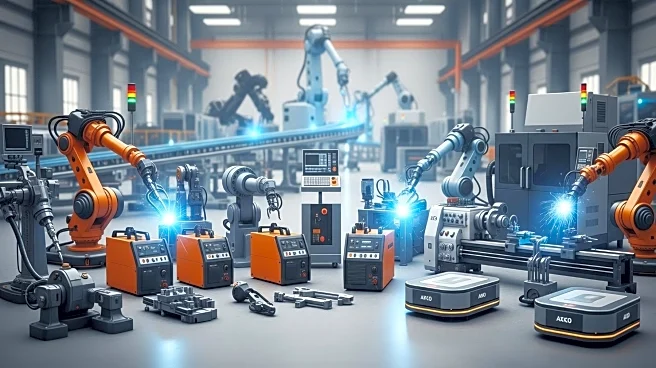What's Happening?
The 2025 World Manufacturing Convention, held in Hefei, Anhui province, brought together international participants from various industries to focus on advancing the global manufacturing sector through collaboration. The convention highlighted the importance of technological progress and international cooperation as key drivers for the future of manufacturing. Christian Wulff, Honorary Chairman of the Global Alliance of SMEs, emphasized the role of openness and innovation in industrial development. Christoph Ahlhaus, President of the German Federal Association of SMEs, illustrated how companies are becoming innovation partners, using augmented reality for real-time equipment debugging across borders. Yin Tongyue, Chairman of Chery Holding Group, shared insights on the automaker's global expansion, reflecting the broader trend of Chinese manufacturing integrating worldwide resources.
Why It's Important?
The convention underscores the critical role of collaboration in the manufacturing industry, which is essential for sustainable growth and technological advancement. By promoting deeper integration of industry, academia, research, and application, stakeholders can dismantle barriers to the flow of technology, talent, and data. This approach is vital for maintaining competitiveness in the global market, as it allows for the sharing of resources and expertise across borders. The emphasis on cooperation could lead to more efficient production processes, innovation in manufacturing techniques, and the development of new products, benefiting both local and international economies.
What's Next?
As the convention concludes, the focus on open cooperation is expected to continue driving the global manufacturing sector towards greater integration and prosperity. Stakeholders are likely to pursue further collaborations, leveraging technological advancements to enhance production capabilities and expand market reach. This could involve forming new partnerships, investing in research and development, and adopting innovative technologies to improve efficiency and competitiveness. The ongoing dialogue and partnerships established during the convention may lead to new initiatives aimed at fostering global industrial growth.
Beyond the Headlines
The convention's emphasis on collaboration highlights the ethical and cultural dimensions of global manufacturing. By fostering partnerships across borders, industries can promote cultural exchange and understanding, which are crucial for successful international cooperation. Additionally, the integration of diverse perspectives and expertise can lead to more inclusive and sustainable industrial practices. This approach not only benefits economic stakeholders but also contributes to the broader goal of creating a more interconnected and harmonious global community.









